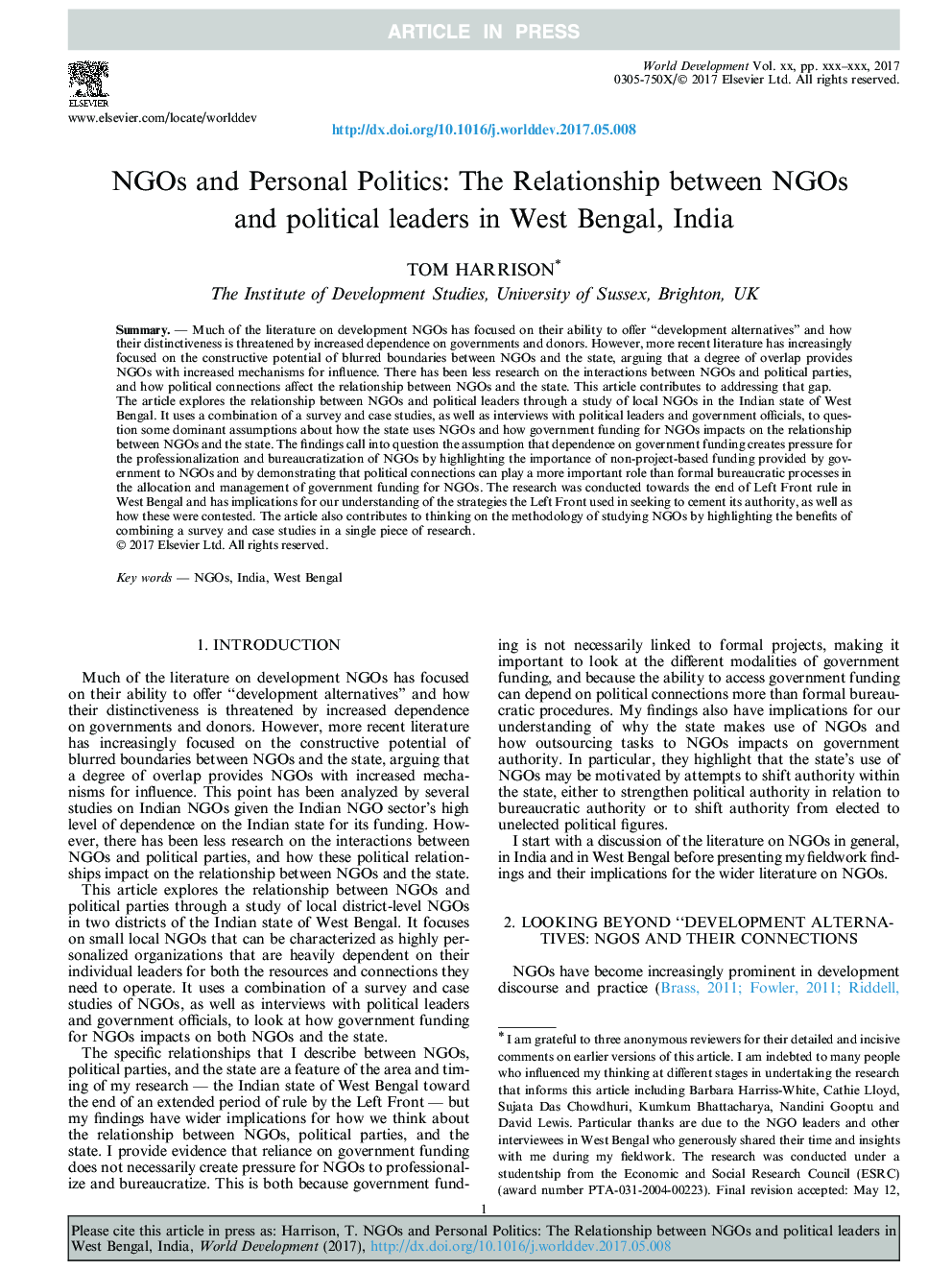| Article ID | Journal | Published Year | Pages | File Type |
|---|---|---|---|---|
| 5105158 | World Development | 2017 | 12 Pages |
Abstract
The article explores the relationship between NGOs and political leaders through a study of local NGOs in the Indian state of West Bengal. It uses a combination of a survey and case studies, as well as interviews with political leaders and government officials, to question some dominant assumptions about how the state uses NGOs and how government funding for NGOs impacts on the relationship between NGOs and the state. The findings call into question the assumption that dependence on government funding creates pressure for the professionalization and bureaucratization of NGOs by highlighting the importance of non-project-based funding provided by government to NGOs and by demonstrating that political connections can play a more important role than formal bureaucratic processes in the allocation and management of government funding for NGOs. The research was conducted towards the end of Left Front rule in West Bengal and has implications for our understanding of the strategies the Left Front used in seeking to cement its authority, as well as how these were contested. The article also contributes to thinking on the methodology of studying NGOs by highlighting the benefits of combining a survey and case studies in a single piece of research.
Keywords
Related Topics
Social Sciences and Humanities
Economics, Econometrics and Finance
Economics and Econometrics
Authors
Tom Harrison,
